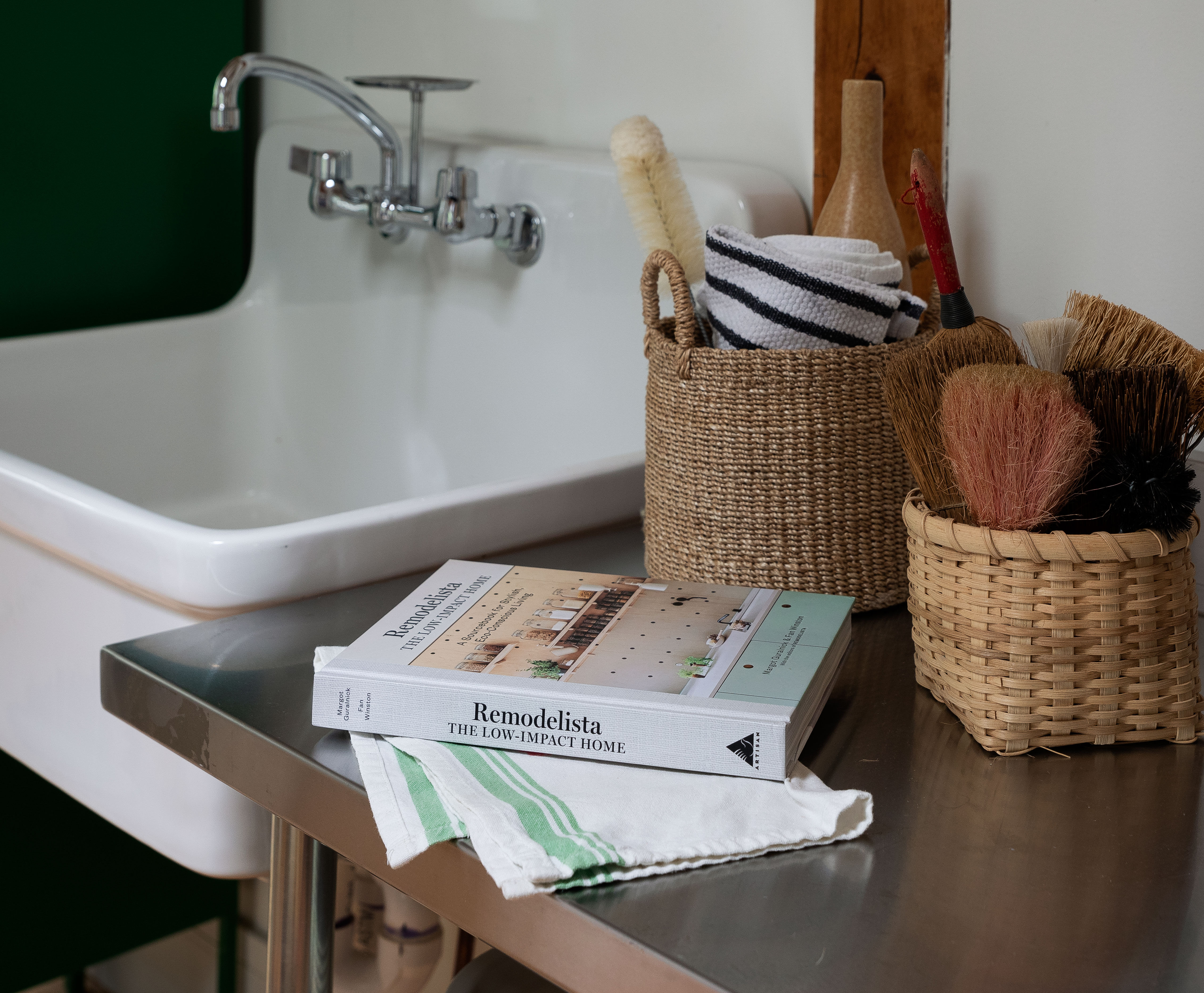
When we launched Remodelista in 2007, our organizing principle centered on sustainability, and of course, design with integrity. Over the years we have continued to focus on eco-friendly design and well-made, time-tested products.
Photograph by Matthew Williams.
Our genius coauthors and longtime Remodelista editors Margot Guralnick and Fan Winston.
Fan reports I do the laundry far less frequently I rewear clothes several times before I wash and I stopped bringing woolens to the dry cleaner I handwash them instead I do my best to cut down on food waste and make...
Small Changes Lead to Better, Planet-Friendly Choices
...a point of eating leftovers I think the biggest habit shift though is to just pause before buying anything new Do I need it What is it made of Do I really love it Will it last If not is it recyclable
Margot now takes navy showers I turn off the water when I m soaping up I do this wherever I am it s become a habit In the kitchen we use cloth napkins beeswax wraps instead of plastic biodegradable sponges dish towels and rags and saved glass jars And we are attempting to have our compost collection exceed our garbage output but have yet to succeed on that front Before...
...buying anything new I first look for the same or equivalent in the vintage and resale market As for laundry sheets and towels go in the dryer but I now only air dry my clothes they occupy standing racks hangers and clothespins in our very unglamorous basement And I make my own laundry soap a mix of borax soap flakes washing soda and baking soda It works in an HE machine
• Julie now heads to Etsy or eBay whenever she needs a household essential.
• Annie has started saving glass jars to reuse as water bottles.
Justine says I avoid buying clothing made with synthetics But for washing my daughter s required ballet leotard and our family swimsuits I use a Guppyfriend bag that catches microplastics I ve also started...
...having milk from a local diary delivered in glass bottles because milk cartons are lined with plastic Since learning that most plastic really isn t recyclable I try to avoid items with plastic packaging
Alexa reports In the past year I ve cleaned up my grocery process no plastic no chemicals and plenty of reusable cotton I use extra large Baggu bags for groceries reusable cotton sacks they re actually nut milk bags for produce and I bring Weck jars for bulk goods I ve really enjoyed committing to bulk goods So many benefits no need for excess plastic packaging and if you bring...
...the container it s going to eventually live in that saves you from having to decant it later and allows you to buy the perfect amount for that container Tip for easy checkout write the tare weight on a piece of masking tape on the jar These components cotton bags grocery bags Weck jars a pen masking tape all live in a canvas tote that is always ready to go
Here are some sneak peeks of our new book.
The Low-Impact Home is filled with tips on how to greenify every room—the kitchen, bathroom, bedroom, and more.
Photograph by Justine Hand for Remodelista.
Pre-order via Amazon, Barnes & Noble, Books-a-Million, and Bookshop.
To Pre-Order: US
Canada
United Kingdom
Pre-order via Amazon UK and Waterstones.